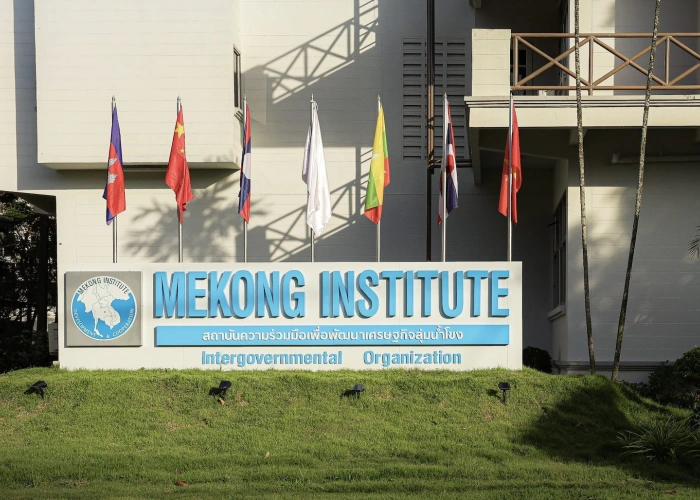Mekong Institute

Adapted from the project website
About
Mekong Institute, or MI, was established on August 28, 1996, by the New Zealand Ministry of Foreign Affairs and Trade and the Thai Department of Technical and Economic Cooperation to promote economic development and cooperation in the Greater Mekong Subregion (GMS).
Since 2009, under a Royal Decree signed by the King of Thailand, MI has grown into a recognized intergovernmental organization (IGO) which is represented by all six GMS countries, namely Cambodia, P.R. China, Lao PDR, Myanmar, Thailand, and Viet Nam.
Throughout the years, MI has played a transformational role in capacity development in the region, focusing on human resource and learning programs to enhance regional development, cooperation, and integration. The institute provides training, conducts research, gives advice and facilitates policy dialogues on topics that matter to the GMS.
As one of the longest-running intergovernmental organizations owned by the GMS governments, MI is committed to helping to build a better GMS by connecting the GMS countries, and advancing development on all fronts. In recent years, MI has expanded its services and assumed new roles to support various sub-regional cooperation frameworks and mechanisms. Its most recent regional mandates are as a regional coordinator of the GMS Knowledge Network and the provision of back-office support for Ayeyawady-Chao Phraya-Mekong Economic Cooperation Strategy (ACMECS).
Our goal is a prosperous GMS where societies are more inclusive, and economic development is shared among the countries is our goal.
Main Strategic Goals
MI’s activities always strive to achieve MI’s goals in the areas of agricultural development and commercialization; trade and investment facilitation; sustainable energy and environment. The strategic goals are:
- Increase agricultural commercial production and strengthen sustainable food systems
- Increase access to international markets and cross-border trade
- Increase adoption of power grid connectivity, renewable energy, energy efficiency, and climate-smart technologies in agriculture and trade initiatives
While delivering areas of support under the three regional development themes, MI also addresses issues of social inclusion and vulnerability, digital economy and innovation, and labor mobility to cement holistic and sustainable impacts in the subregion and beyond.
Implementing Strategies
As set out in the MI Strategic Plan 202-2025, the strategies for implementation are:
- Implement projects in partnerships
- Provide advisory services to GMS governments, development partners, the private sector, and civil society
- Conduct research for policy advocacy on transboundary development areas
For more information, see the MI Strategic Plan 2021-2025 and the MI Strategic Plan Infographic.